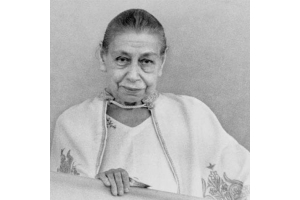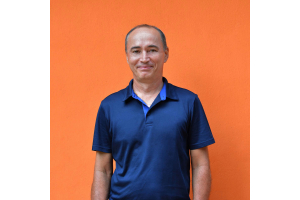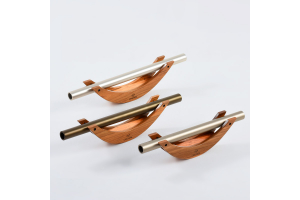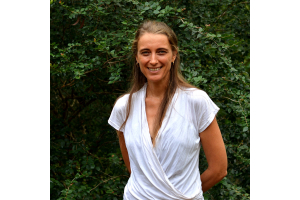Meet Auroville: Bobby and Doris from Auroknits
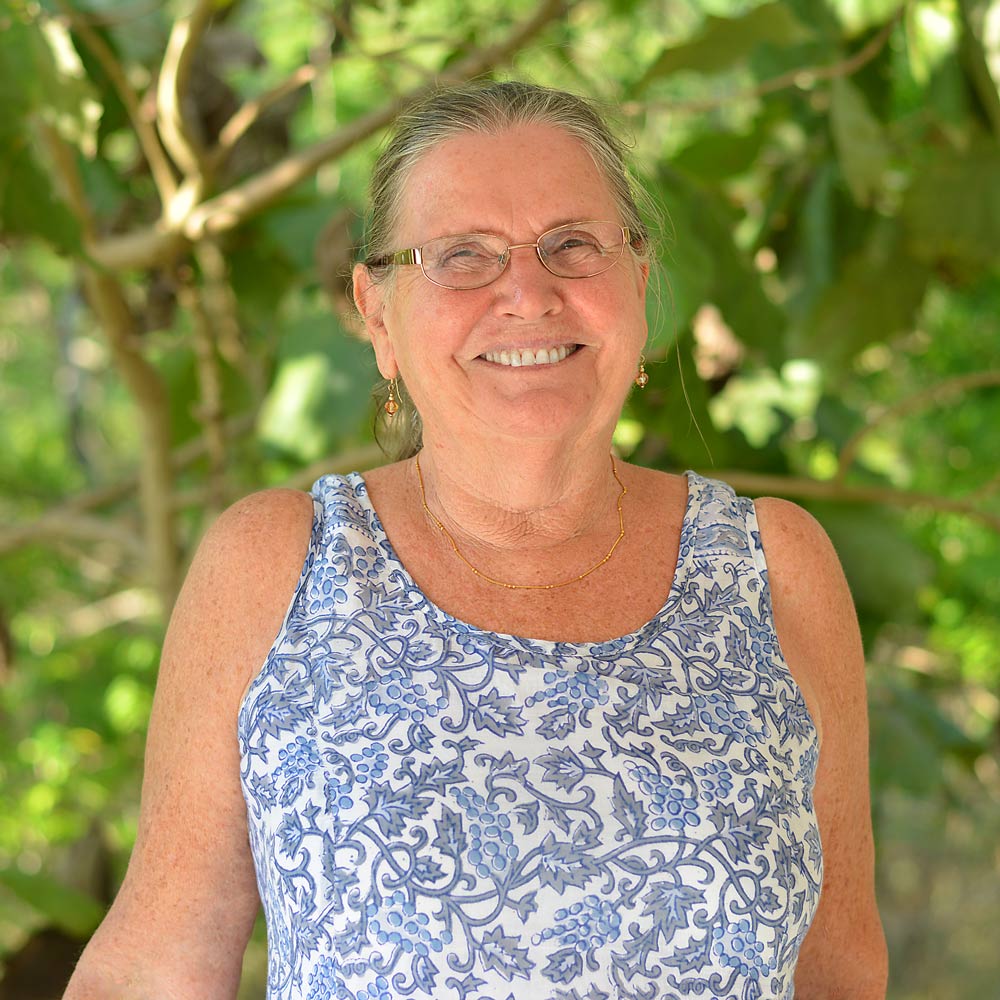
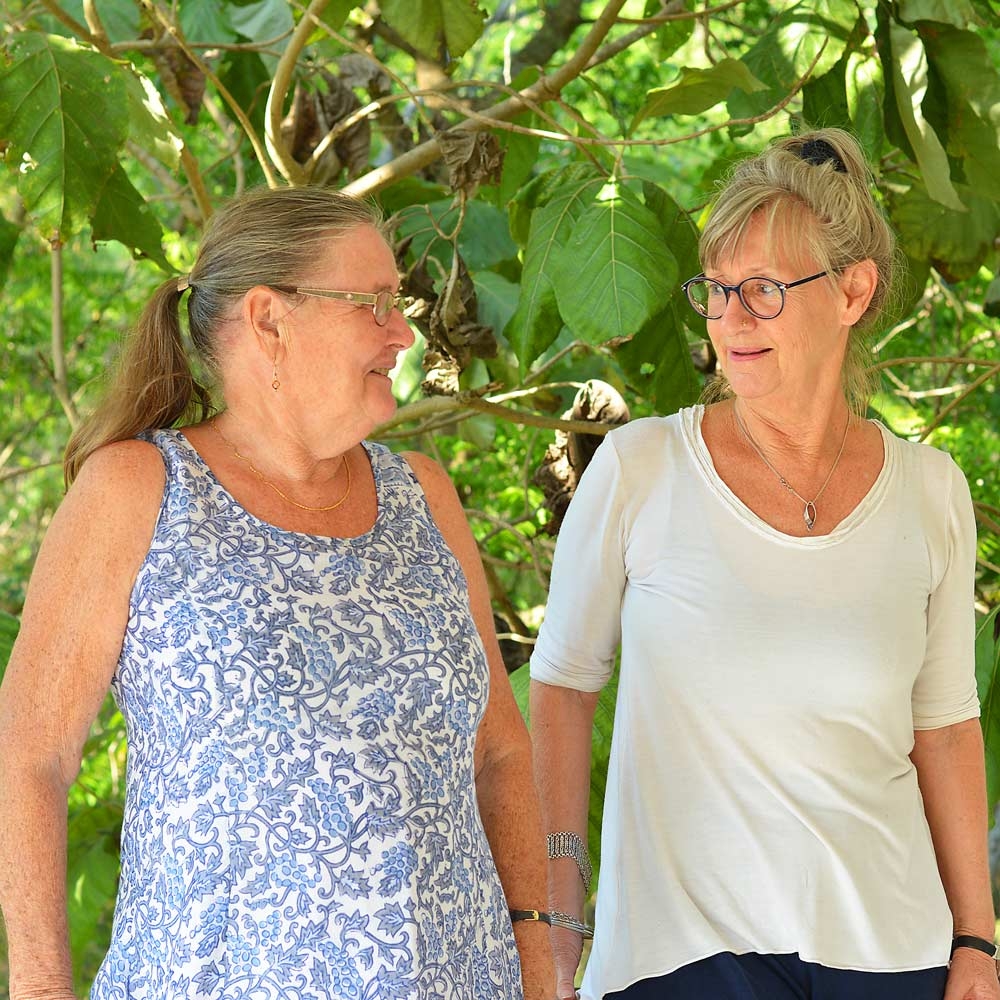
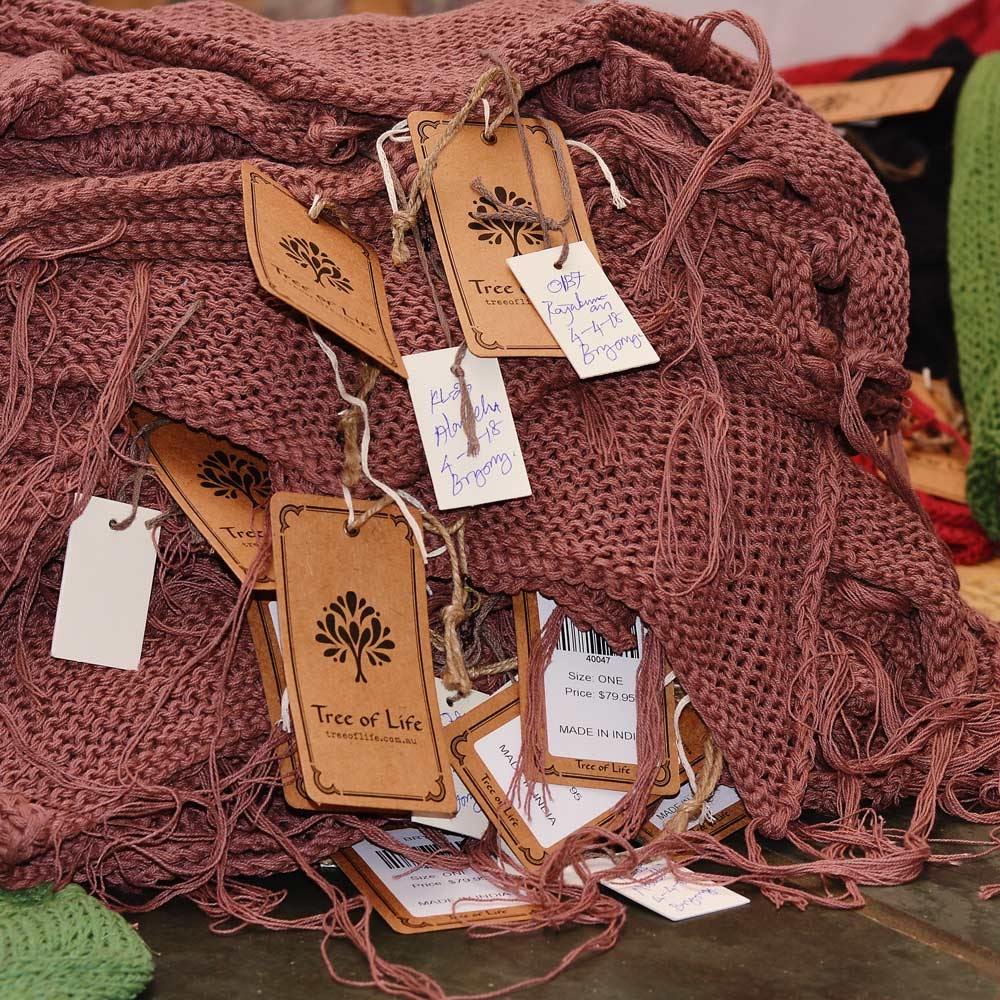
Where are you from originally? Do you think it has shaped who you are today?
Bobby: I am from Bristol, England. My grandmother taught me how to crochet when I was four or five, so that is probably what set me on the path of what I am doing today. Since then I have always been knitting, crocheting or doing some kind of handicraft.
Doris: I am from Germany, Duesseldorf. And I was not involved in fashion until I came to Auroville. About 18 years ago I opened my own tailoring workshop here, however I had to close it because it was a lot of work to maintain and in the end it was difficult to survive on it. So for a while I did this and that until 8 years ago, when I finally joined Auromics.
When did you first get involved professionally in fashion design?
Bobby: Never (laughs). I am self-taught. In 1980 I trained the first lady to knit here in Auroville. After that we developed real training schemes, other ladies from the surrounding villages of Auroville learned and we started out making some very bad sweaters, but that improved over the years. In 1993 we started the Unit Auromics, right when the Auroville Foundation created the trusts. So we made our own trust, which by the way also includes my husband Andre’s leather bag workshop, Amano.
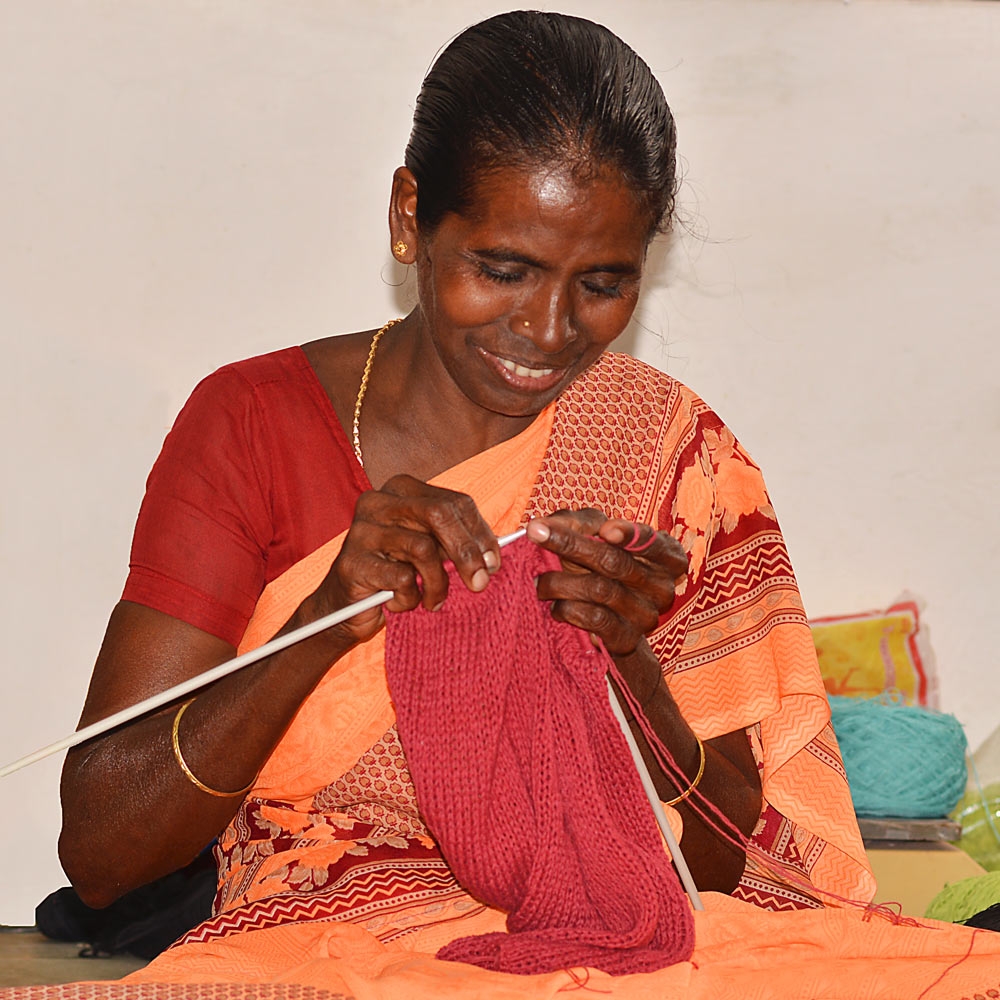
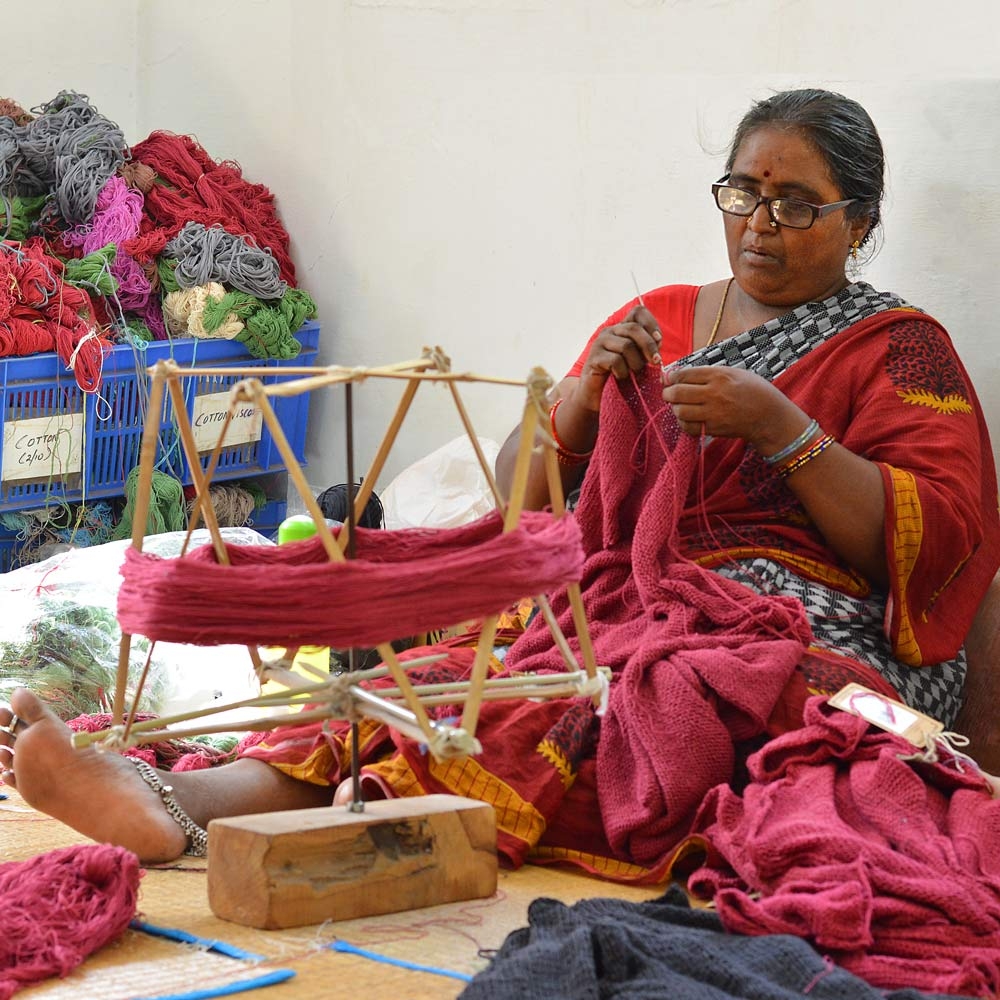
How did the beginning of Auromics in 1980 look like?
I was living in Germany at the time but coming to India regularly for business and I met this guy, Ivar, from Auroville. At the time the women from the Auroville’s surrounding villages had no work and his vision was to give them some kind of source of income. So one evening he brought one lady from Auroville to the hotel in Chennai where I was staying and I basically taught her how to knit in one night. So the next day they went back and she started teaching knitting to other ladies. In that process Ivar created some governmental training schemes where people could learn how to knit. At that point Heidi came into the picture, with all her experience in knitting she improved the quality quite a bit. Heidi is still working with us today. Until 1989 I was going back and forth between Germany and India, I would take the sweaters to Germany and bring back the payment, but in that year I decided I wanted to stay in Auroville full time. At that point the ladies were knitting in my house in Isaiambalam, so during the daytime my living room table was a checking table and at night I served dinner to my family on it. In 1994/95 we invested all our private money to purchase land and build the workshop. We later donated the entire land to Auroville.
What is the inspiration behind your creations?
Doris: We are very flexible in this regard. Bobby: There is no deep inspiration so to speak. The main thing is the joy of making and creating clothes, to have fun basically. We are always looking to get involved in something new. This is why we first had knitting, then crocheting, tailoring and now we have a book. Furthermore we are running the manufacture of whole collections for outside clients, which includes designs, samples and production.
Your entire collections are locally manufactured in and around Auroville. What does that mean exactly?
This means that we have lots of ladies working for us in the villages around Auroville. At the moment we have around 50 places where women are knitting in a small collective. In total there are more than 300 women that knit for us. They are organized in a way that for each village we have only one lady responsible for giving out the work and collecting the pieces. Sometimes we provide training, but more and more of them learn from their mothers, aunts and friends. Doris: One has to understand that these ladies really like these kinds of handicrafts, which they do in their spare time. They meet together to knit and crochet, they sit and talk, the kids are around so it is quite a social time for them. All the women have another main income and this work for us is an additional income. Bobby: Even though it is just part time work for us, we pay the social security like the health insurance and the retirement fund for them. This has been very important to us from the beginning, that even though they will not get rich with the work they are doing for us they get a proper health insurance, and at the end of their working life they have a small pension to live on.
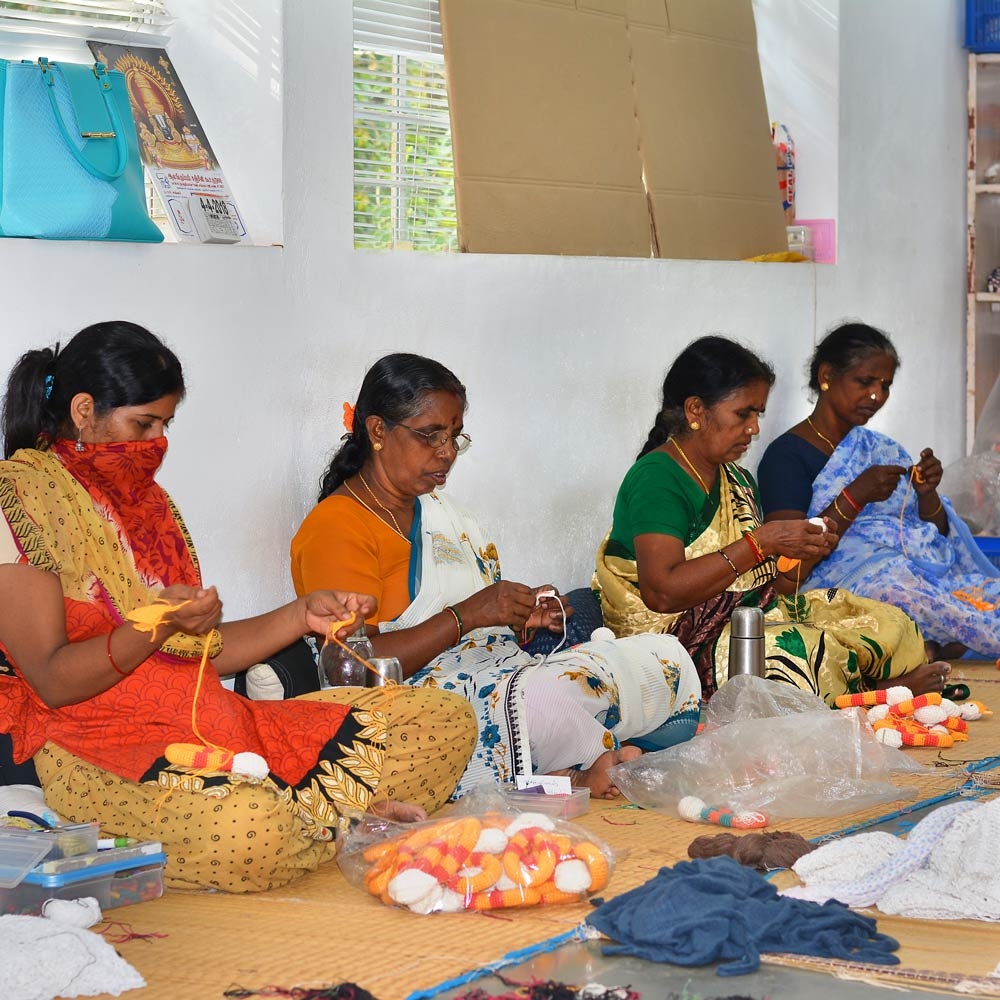
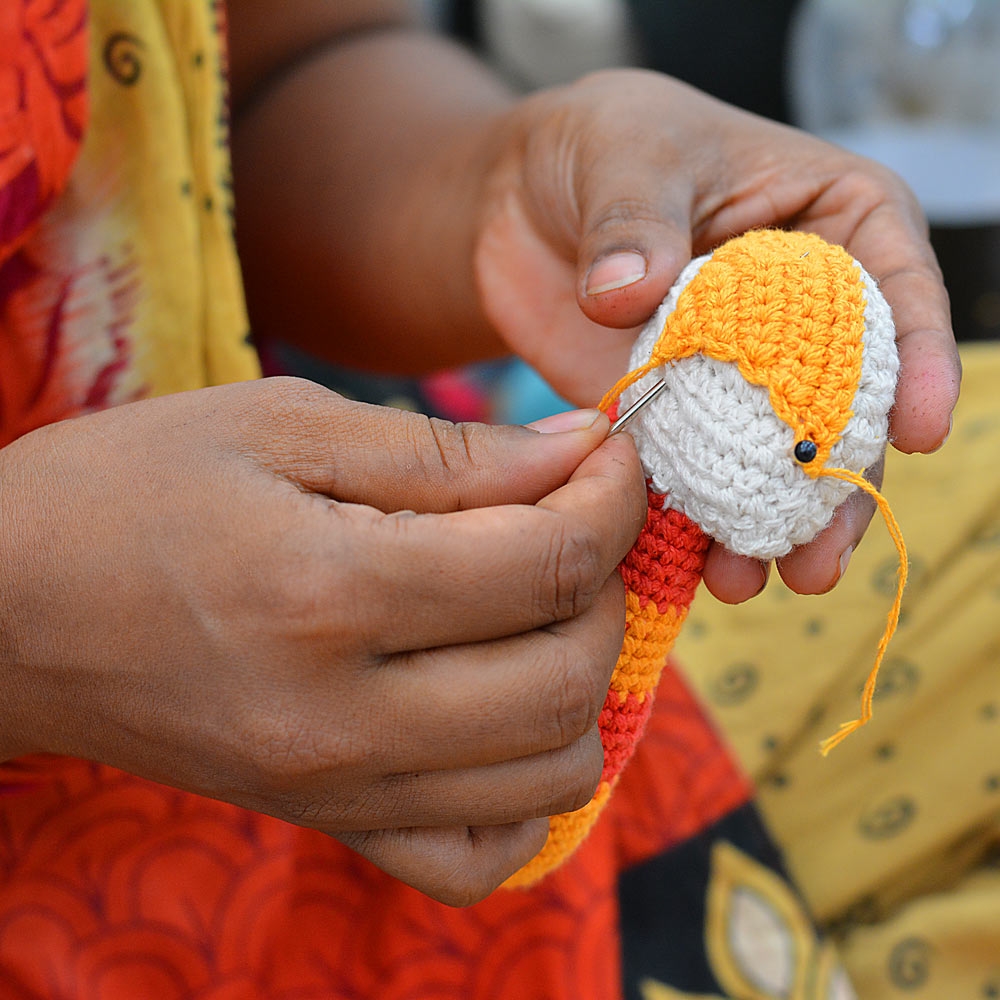
What does a typical day look like for you?
I come in at about 8 o’clock before everyone else to prepare my day. At around 8.30 am everyone else is starting to show up and I do a round in each section to see what needs to be done, which orders the ladies are working on and what needs to be finished by the end of the day. Then, at around 9.30 Heidi arrives and we start working on samples, which takes quite some time for knitting since one needs to document all these row numbers. For some clients we do summer and winter collections with entire designs, so that takes a lot of my time. At 12 everyone stops for lunch. In the afternoon it is somehow quieter. Often Doris and I sort out deliveries and stocks, what needs to be produced, what has to be sent where and so on. Around 4 pm we are finished and our gates close at 4.30 pm.
How does Auroville influence your way of running a business?
Well obviously I am not here to make money for myself personally, but for Auroville. However I have to say that Auromics does not create a huge amount of contribution towards Auroville, because actually we are more of a social enterprise then a fully commercial business. Nevertheless I decided in the very beginning, and I still believe in this, that our work should be organized as a business and not as a social organization. I never liked the idea on living of grants and donations, to not be a self-supporting unit. So now we are self-supporting, we do not receive any help from the government, but considering all the social aspects we are taking care of as an employer, it is not really possible to generate huge profits.
Doris: Another aspect is that Auroville is an international township, we meet people from all over the world who come to our workshop and are interested in our way of working. We do not need to go out a lot to meet potential resellers because they come here.
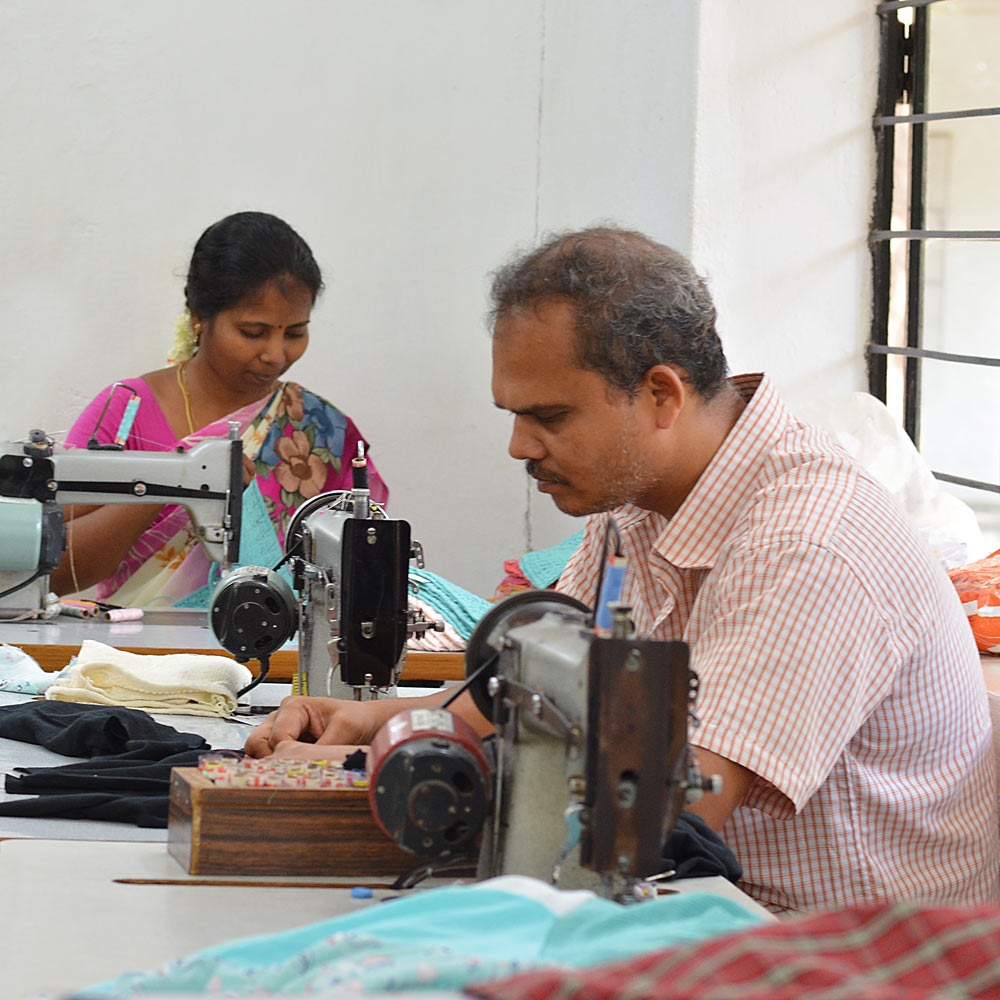
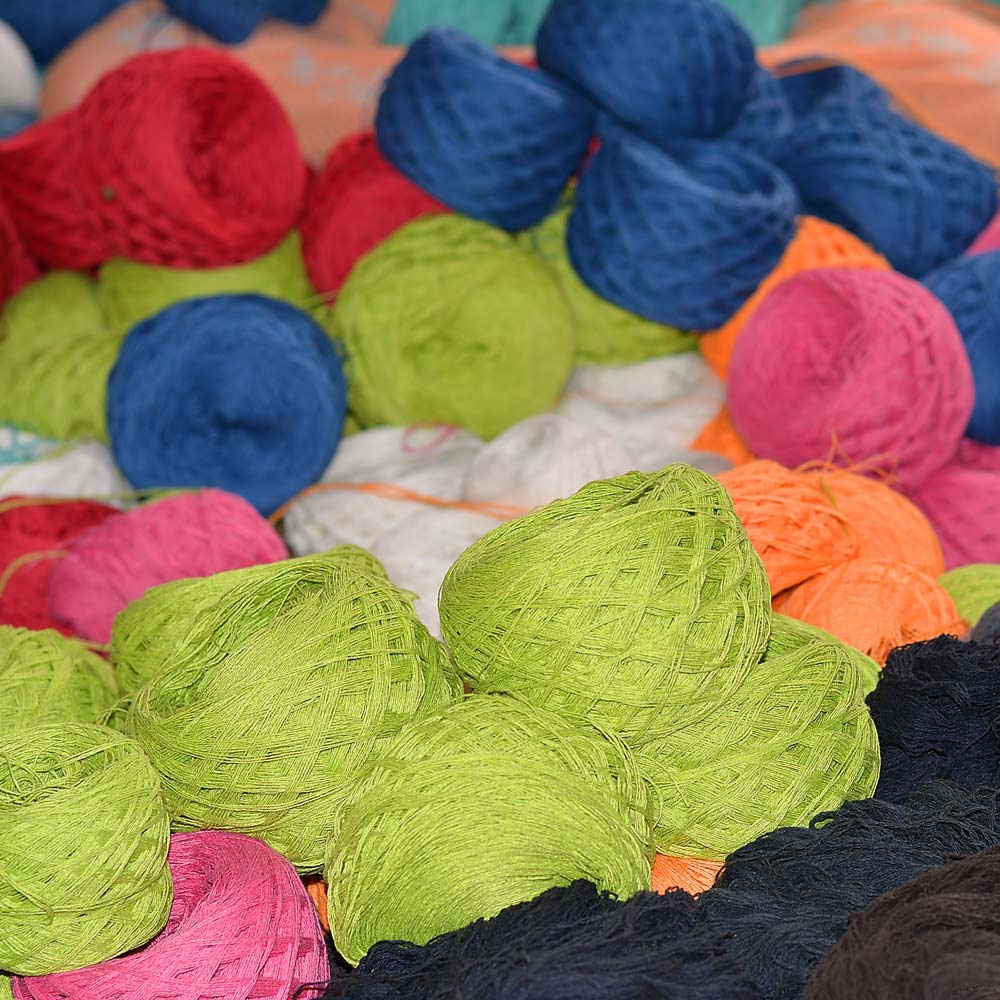
What is next for Auromics?
I need to slow down a little and divide things up, as I am not getting any younger.
I would also like to find someone who can take over and continue what we have started, so that Auromics continues to flourish.
Living in Auroville means….
Doris: It is the place for me to be, I feel blessed that I have the opportunity to live and work here.
Bobby: Being home.
To have a look at the Auromics collection please click here.

